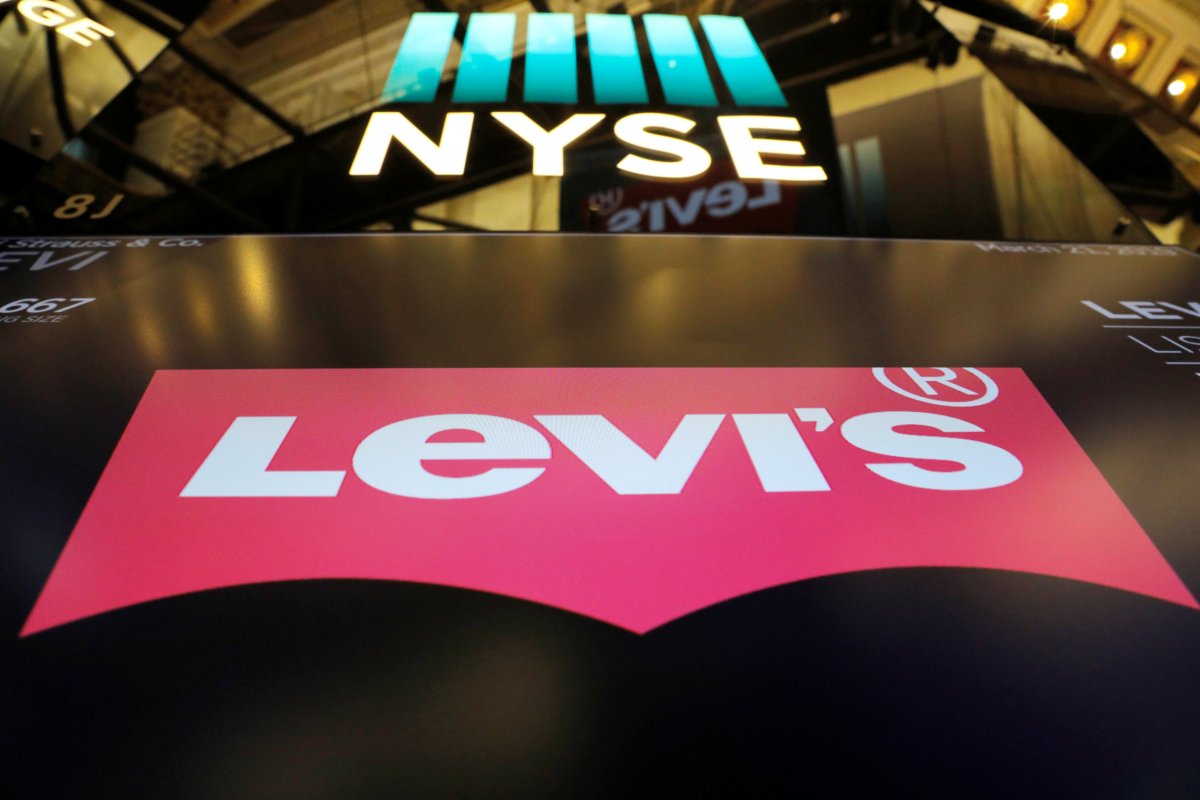(Reuters) – Levi Strauss & Co <LEVI.N> said on Tuesday a majority of its stores in China, where the coronavirus outbreak first emerged in December, were open with sales recovering on a weekly basis and digital sales rising last month.
The company also reported better-than-expected earnings and revenue for the first quarter ended Feb. 23, even as sales in Asia declined due to store closures, sending Levi’s shares up about 3%.
Like many U.S. retailers, Levi’s has been hit by the coronavirus crisis as lockdowns in China and the United States to curb the spread of the infection forced store closures. Levi’s has stood through the world wars and the 1918 flu pandemic in its 167-year history.
Nearly all stores in mainland China, including the store in Wuhan, the epicenter of the outbreak, were now open, Levi Strauss said.
Traffic and sales in the region remained down, but weekly sales performance was sequentially improving, the company said, adding that sales from its websites and other online platforms grew in March powered by demand for women’s wear.
The retailer has been investing more in its e-commerce business, adding features designed to attract young shoppers, to cope with decline in foot traffic to malls and department stores due to a shift in shopping preferences.
“We’re trying to find ways to connect more strongly with consumers during the period of time that they’re cooped up… We’re going to continue to leverage digital,” Chief Executive Officer Chip Bergh said on a post-earnings call.
The company said the impact of the outbreak would be “materially significant” for the second quarter, as stores remain closed in the United States, where over 10,000 deaths have been reported.
Levi said it would furlough all its retail store staff in the country, a step taken by many retailers as they extend store closures. The company had about 7,300 U.S. employees as of Nov. 24, according to its annual filing.
It also said it had borrowed $300 million on a credit facility to boost its balance sheet.
For the first quarter ended Feb. 23, Levi said sales rose 5% to $1.51 billion, powered by its direct-to-consumer business. Analysts were expecting $1.47 billion, according to IBES data from Refinitiv.
Excluding one-time items, the company earned 40 cents, beating Wall Street estimates by 5 cents.
(Reporting by Nivedita Balu in Bengaluru; Editing by Shinjini Ganguli)
























